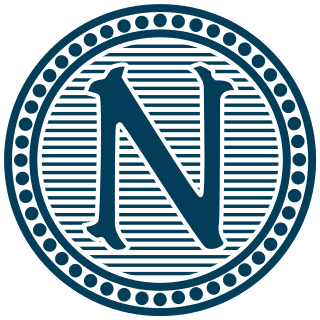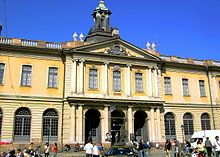
The Nobel Prizes are five separate prizes awarded to those who, during the preceding year, have conferred the greatest benefit to humankind, as established by the 1895 will of Swedish chemist, engineer, and industrialist Alfred Nobel, in the year before he died. Prizes were first awarded in 1901 by the Nobel Foundation. Nobel's will indicated that the awards should be granted in the fields of Physics, Chemistry, Physiology or Medicine, Literature, and Peace. A sixth prize for Economic Sciences, endowed by Sweden's central bank, Sveriges Riksbank, and first presented in 1969, is also frequently included, as it is also administered by the Nobel Foundation. The Nobel Prizes are widely regarded as the most prestigious awards available in their respective fields.

The Nobel Prize in Physics is an annual award given by the Royal Swedish Academy of Sciences for those who have made the most outstanding contributions to mankind in the field of physics. It is one of the five Nobel Prizes established by the will of Alfred Nobel in 1895 and awarded since 1901, the others being the Nobel Prize in Chemistry, Nobel Prize in Literature, Nobel Peace Prize, and Nobel Prize in Physiology or Medicine. Physics is traditionally the first award presented in the Nobel Prize ceremony.

The Nobel Prize in Physiology or Medicine is awarded yearly by the Nobel Assembly at the Karolinska Institute for outstanding discoveries in physiology or medicine. The Nobel Prize is not a single prize, but five separate prizes that, according to Alfred Nobel's 1895 will, are awarded "to those who, during the preceding year, have conferred the greatest benefit to humankind". Nobel Prizes are awarded in the fields of Physics, Medicine or Physiology, Chemistry, Literature, and Peace.

The Nobel Foundation is a private institution founded on 29 June 1900 to manage the finances and administration of the Nobel Prizes. The foundation is based on the last will of Alfred Nobel, the inventor of dynamite.
The Nobel Assembly at the Karolinska Institute is a body at Karolinska Institute that awards the Nobel Prize in Physiology or Medicine. It is headquartered in the Nobel Forum on the grounds of the Karolinska Institute campus. Originally the Nobel Assembly was not a formal body but rather the collective of all professors at Karolinska Institute. In 1977, the Nobel Assembly became a separate private organization hosted by Karolinska Institute. Until 1984, all Karolinska Institute professors belonged to the Assembly; since 1984, the membership has been restricted to 50 Karolinska Institute professors.

The Nobel Prize in Chemistry is awarded annually by the Royal Swedish Academy of Sciences to scientists in the various fields of chemistry. It is one of the five Nobel Prizes established by the will of Alfred Nobel in 1895, awarded for outstanding contributions in chemistry, physics, literature, peace, and physiology or medicine. This award is administered by the Nobel Foundation, and awarded by the Royal Swedish Academy of Sciences on proposal of the Nobel Committee for Chemistry which consists of five members elected by the Academy. The award is presented in Stockholm at an annual ceremony on 10 December, the anniversary of Nobel's death.
The Nobel Committee for Physiology or Medicine is the Nobel Committee responsible for proposing laureates for the Nobel Prize in Physiology or Medicine. The Nobel Committee for Physiology or Medicine is appointed by the Nobel Assembly at the Karolinska Institute, a body of 50 members at Karolinska Institute that is formally a separate body not part of the institute itself. It consists of professors of physiology or medical subjects active at Karolinska Institute. Other than the five ordinary members, ten associated members are appointed each year, for that year only.






